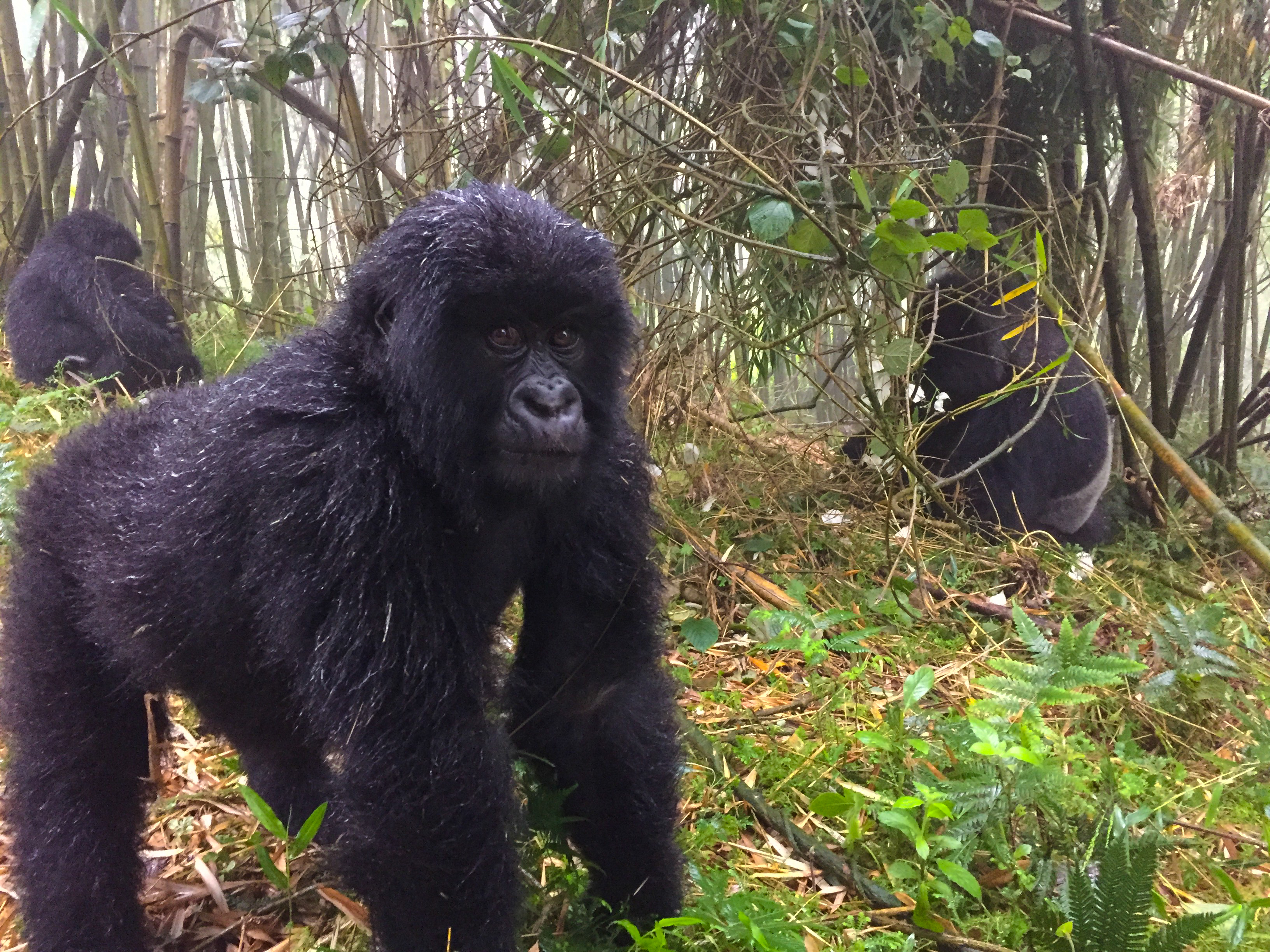A One Health approach to protecting mountain gorillas - Emily Denstedt
Rwanda is home to the critically endangered mountain gorilla (Gorilla beringei beringei). Local Rwandan communities, as well as their livestock, live directly adjacent to Volcanoes National Park inhabited by the gorillas, and gorillas have been known to exit the park into these communities. Presently, no effective physical barrier exists around the perimeter of the park leaving opportunity for intermingling of local people, livestock, and primates despite the park’s diligent patrol efforts. Park employees, researchers, tourists, and veterinary staff are also in close daily contact with primate groups.
The close proximity of humans to the mountain gorillas in Rwanda increases the risk of zoonotic pathogen transmission in both directions. To preserve the health of the mountain gorillas, the health of the people surrounding the park must be improved and maintained. A need for Continuing Professional Development (CPD) in frontline healthcare workers was identified in Rwanda. In response to this, a public health intervention was implemented and evaluated, delivering CPD to nurses from village health centres surrounding the park. The aim of this project is to build capacity among Rwandan healthcare providers, thereby improving the health and quality of life of local people within villages adjacent to the gorilla habitat.
